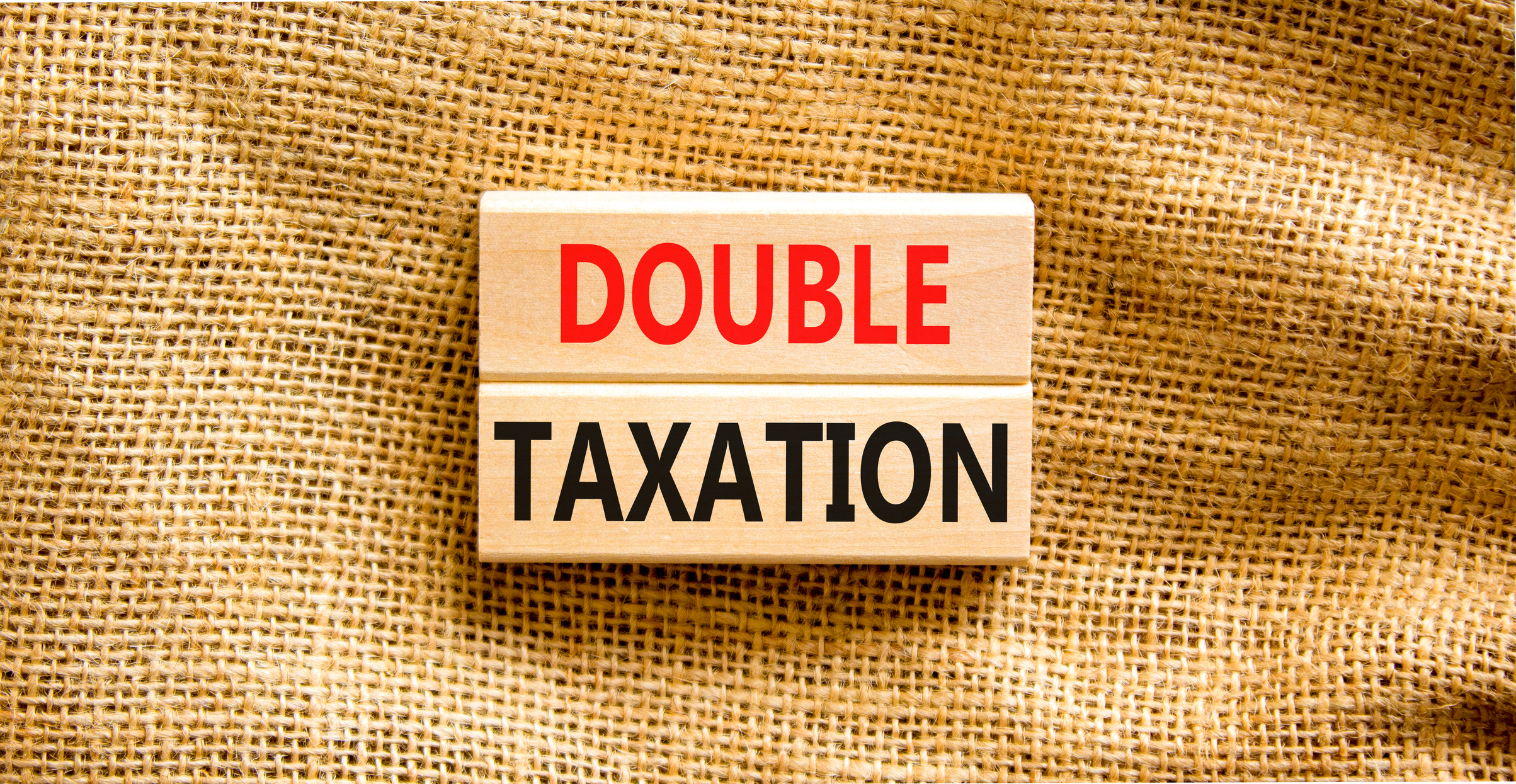Missouri Tax Guide
Explore Missouri's state tax rates for income, sales, property, retirement, and more. Learn how Missouri compares nationwide.

Gabriella Cruz-Martínez

Profit and prosper with the best of Kiplinger's advice on investing, taxes, retirement, personal finance and much more. Delivered daily. Enter your email in the box and click Sign Me Up.
You are now subscribed
Your newsletter sign-up was successful
Want to add more newsletters?

Delivered daily
Kiplinger Today
Profit and prosper with the best of Kiplinger's advice on investing, taxes, retirement, personal finance and much more delivered daily. Smart money moves start here.

Sent five days a week
Kiplinger A Step Ahead
Get practical help to make better financial decisions in your everyday life, from spending to savings on top deals.

Delivered daily
Kiplinger Closing Bell
Get today's biggest financial and investing headlines delivered to your inbox every day the U.S. stock market is open.

Sent twice a week
Kiplinger Adviser Intel
Financial pros across the country share best practices and fresh tactics to preserve and grow your wealth.

Delivered weekly
Kiplinger Tax Tips
Trim your federal and state tax bills with practical tax-planning and tax-cutting strategies.

Sent twice a week
Kiplinger Retirement Tips
Your twice-a-week guide to planning and enjoying a financially secure and richly rewarding retirement

Sent bimonthly.
Kiplinger Adviser Angle
Insights for advisers, wealth managers and other financial professionals.

Sent twice a week
Kiplinger Investing Weekly
Your twice-a-week roundup of promising stocks, funds, companies and industries you should consider, ones you should avoid, and why.

Sent weekly for six weeks
Kiplinger Invest for Retirement
Your step-by-step six-part series on how to invest for retirement, from devising a successful strategy to exactly which investments to choose.
Navigating the complexities of state taxes can be daunting, but understanding MIssouri's tax landscape is essential for residents and newcomers alike. In this guide, we'll explore key components of The Show-Me State's tax system, from income and sales taxes to property taxes and retirement benefits.
Missouri state tax: Overview
Missouri recently became a little more tax-friendly toward retirees.
The state repealed its income tax on Social Security retirement benefits, effective as of last year. Though the repeal exempts Social Security benefits and public pension payments from state income tax, public pensions are only partially exempt.
From just $107.88 $24.99 for Kiplinger Personal Finance
Become a smarter, better informed investor. Subscribe from just $107.88 $24.99, plus get up to 4 Special Issues

Sign up for Kiplinger’s Free Newsletters
Profit and prosper with the best of expert advice on investing, taxes, retirement, personal finance and more - straight to your e-mail.
Profit and prosper with the best of expert advice - straight to your e-mail.
The measure was estimated to reduce state general revenue by approximately $309 million annually. Current state law also allows Missouri counties to freeze property tax hikes for homeowners who are at least 62 years old, providing a significant tax break for those entering their retirement years.
Missouri has also become the first state with an income tax to eliminate capital gains taxes for individuals.
However, the state's sales taxes are on the high end. Additionally, while most states have made certain food items tax-exempt, Missouri is one of the states that still taxes groceries.
[Data for this state tax guide was gathered from several sources, including the U.S. Census Bureau, the state’s government website, the Sales Tax Handbook, and the Tax Foundation. Property taxes are cited as a rate percentage rather than the assessed value.]
Missouri income tax

Missouri has a graduated state individual income tax ranging from 2% to 4.8%.
MIssouri retirement taxes
Missouri eliminated the tax on all Social Security retirement benefits, effective beginning with the 2024 tax year.
- Income Tax: Low of 2% (on up to $2,546) and a high of 4.8% (on more than $8,911)
- Social Security: Not taxable
- Pensions: Partially taxable (Public pensions are partially taxed.)
- 401(k) and IRA Distributions: Taxable
Missouri sales tax

Missouri's statewide sales tax is 4.225%, and localities can add as much as
8.013%, according to the Tax Foundation. That puts the maximum sales tax close to the highest in the nation, at an average 8.41% in 2025.
- Groceries: Taxable
- Clothing: Taxable
- Prescription drugs: Taxable
- Diapers and women's hygiene products: Taxable
How much are property taxes in Missouri?

In Missouri, the average effective property rate is 0.88%, which is lower than in most other states.
Missouri also has property tax breaks for retirees. The state offers a property tax credit of up to $1,100, available to eligible homeowners age 65 and older ($750 for renters).
Anyone who receives Supplemental Security Income (SSI), Social Security Disability Insurance (SSDI), or Veterans Disability may also be eligible, regardless of age. To qualify, homeowners must meet the following criteria.
- You must have owned and lived in your home for the entire year.
- Your income must not exceed the income threshold set for the year.
- You must have paid real estate taxes.
Missouri gas tax

Gasoline | $0.17 per gallon |
Diesel | $0.17 per gallon |
Source: Sales Tax Handbook
Missouri taxes on alcohol and tobacco
Product | Tax amount |
|---|---|
Cigarettes | $0.17 per pack |
Other tobacco products | 10% of manufacturer's price |
Source: Sales Tax Handbook
Product | Tax amount |
|---|---|
Beer | $0.06 per gallon |
Wine | $0.42 per gallon |
Liquor | $2.00 per gallon |
Source: Sales Tax Handbook
Missouri estate and inheritance taxes
Missouri does not have an estate or an inheritance tax.
Related Content
Profit and prosper with the best of Kiplinger's advice on investing, taxes, retirement, personal finance and much more. Delivered daily. Enter your email in the box and click Sign Me Up.

Katelyn has more than 6 years of experience working in tax and finance. While she specialized in tax content while working at Kiplinger from 2023 to 2024, Katelyn has also written for digital publications on topics including insurance, retirement, and financial planning and had financial advice commissioned by national print publications. She believes knowledge is the key to success and enjoys providing content that educates and informs.
- Gabriella Cruz-MartínezTax Writer
-
 Quiz: Do You Know How to Avoid the "Medigap Trap?"
Quiz: Do You Know How to Avoid the "Medigap Trap?"Quiz Test your basic knowledge of the "Medigap Trap" in our quick quiz.
-
 5 Top Tax-Efficient Mutual Funds for Smarter Investing
5 Top Tax-Efficient Mutual Funds for Smarter InvestingMutual funds are many things, but "tax-friendly" usually isn't one of them. These are the exceptions.
-
 AI Sparks Existential Crisis for Software Stocks
AI Sparks Existential Crisis for Software StocksThe Kiplinger Letter Fears that SaaS subscription software could be rendered obsolete by artificial intelligence make investors jittery.
-
 How to Open Your Kid's $1,000 Trump Account
How to Open Your Kid's $1,000 Trump AccountTax Breaks Filing income taxes in 2026? You won't want to miss Form 4547 to claim a $1,000 Trump Account for your child.
-
 In Arkansas and Illinois, Groceries Just Got Cheaper, But Not By Much
In Arkansas and Illinois, Groceries Just Got Cheaper, But Not By MuchFood Prices Arkansas and Illinois are the most recent states to repeal sales tax on groceries. Will it really help shoppers with their food bills?
-
 7 Bad Tax Habits to Kick Right Now
7 Bad Tax Habits to Kick Right NowTax Tips Ditch these seven common habits to sidestep IRS red flags for a smoother, faster 2026 income tax filing.
-
 New Plan Could End Surprise Taxes on Social Security 'Back Pay'
New Plan Could End Surprise Taxes on Social Security 'Back Pay'Social Security Taxes on Social Security benefits are stirring debate again, as recent changes could affect how some retirees file their returns this tax season.
-
 Living in One State, Working in Another: How to Avoid a Tax Season Headache
Living in One State, Working in Another: How to Avoid a Tax Season HeadacheState Tax Living and working in two states can take a heavy toll on your paycheck and give you a headache come tax time. Here's what to know.
-
 10 Cheapest Places to Live in Colorado
10 Cheapest Places to Live in ColoradoProperty Tax Looking for a cozy cabin near the slopes? These Colorado counties combine reasonable house prices with the state's lowest property tax bills.
-
 New Gambling Tax Rule Impacts Super Bowl 2026 Bets
New Gambling Tax Rule Impacts Super Bowl 2026 BetsTaxable Income When Super Bowl LX hype fades, some fans may be surprised to learn that sports betting tax rules have shifted.
-
 Should You Do Your Own Taxes This Year or Hire a Pro?
Should You Do Your Own Taxes This Year or Hire a Pro?Taxes Doing your own taxes isn’t easy, and hiring a tax pro isn’t cheap. Here’s a guide to help you figure out whether to tackle the job on your own or hire a professional.